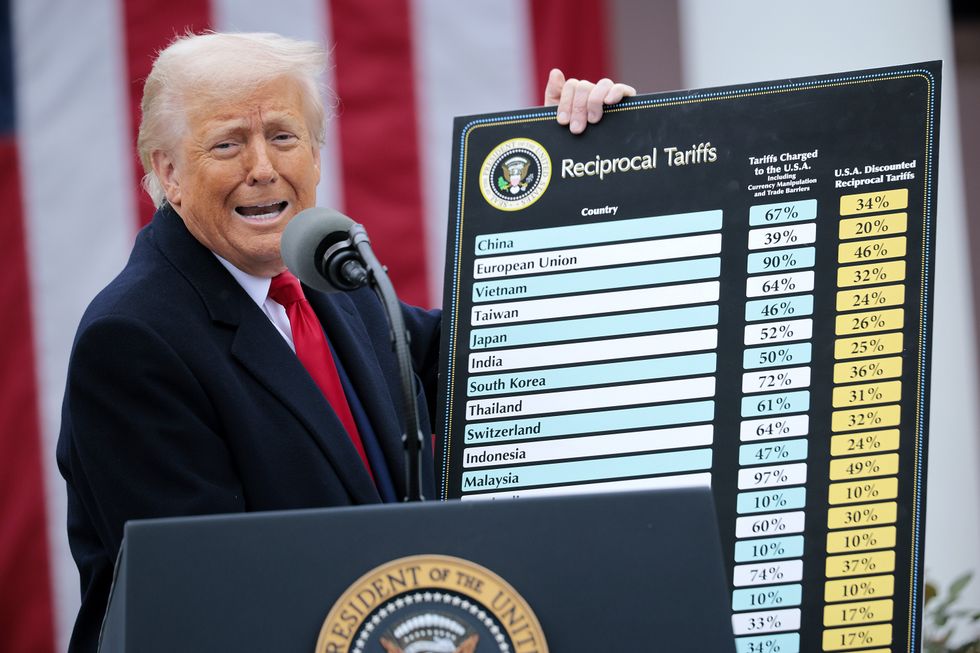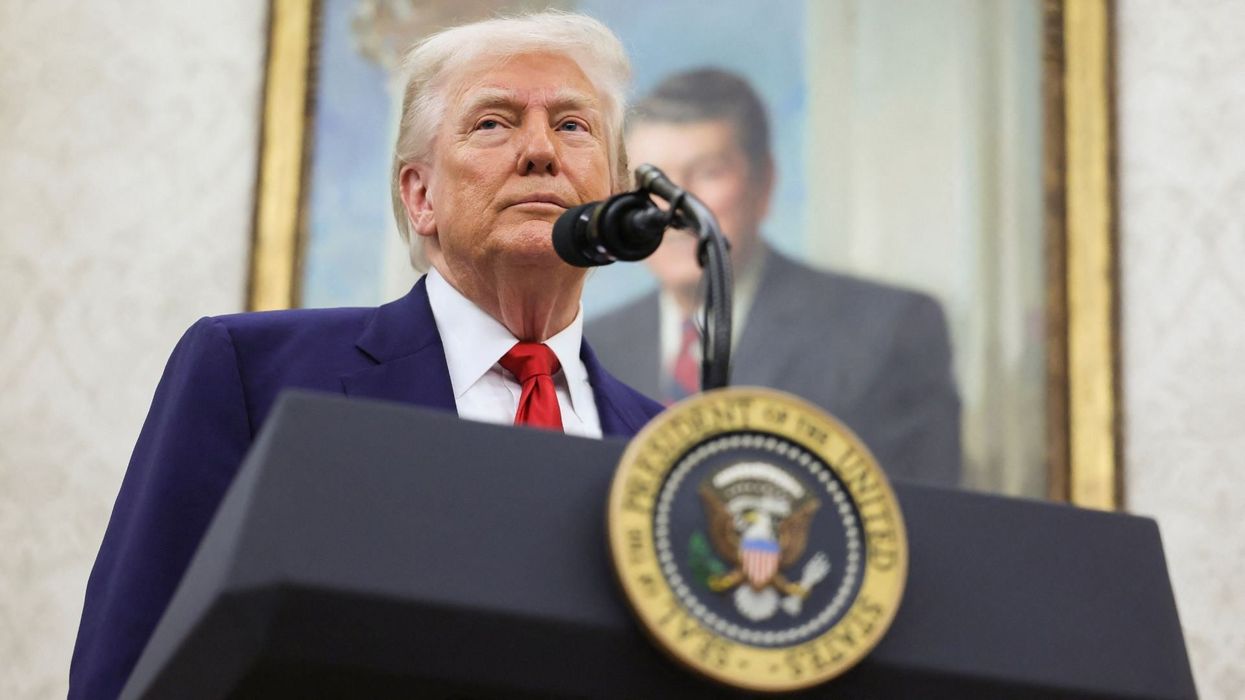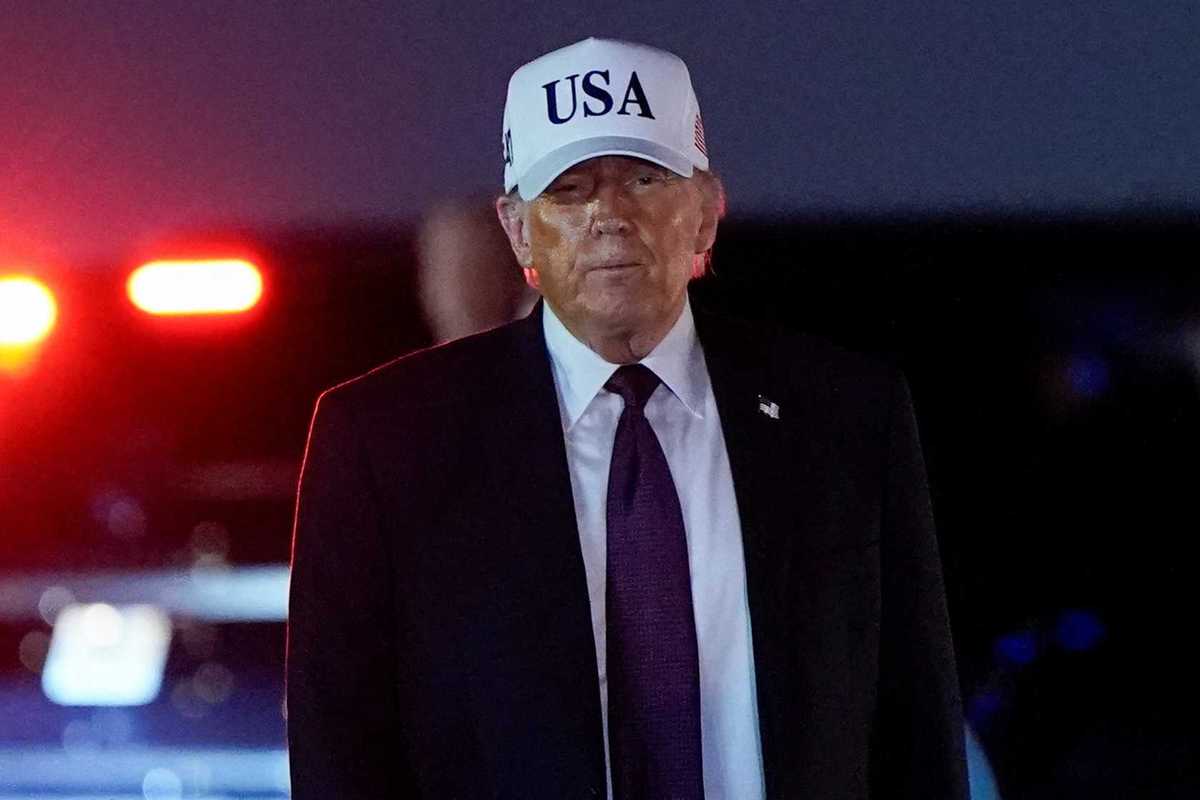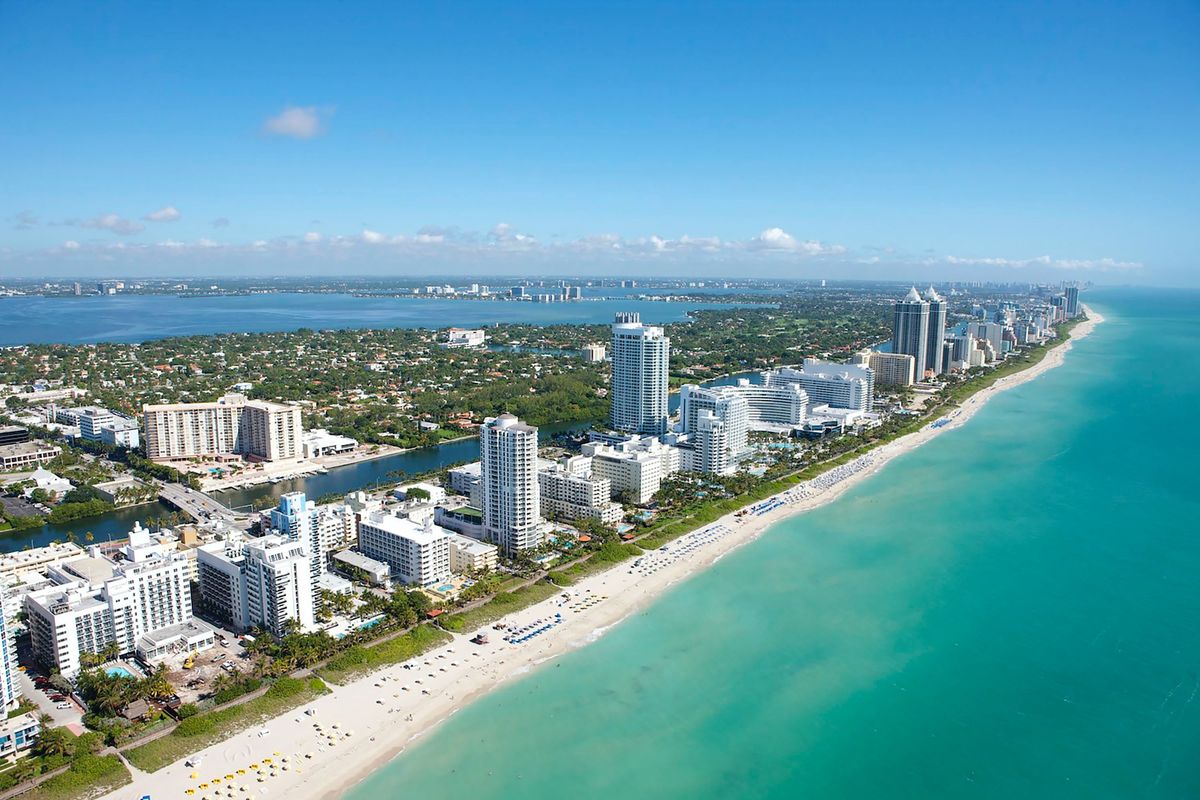Trump
Ellie Abraham
May 29, 2025
US trade court rules Trump’s sweeping global tariffs are unlawful
Aljazeera / VideoElephant
Donald Trump’s grand plans for sweeping tariffs on goods across the world have been dealt a major blow after a US court ruled he has “exceeded his authority”.
On 2 April, Trump announced his so-called “Liberation Day” tariffs in a press event on the lawn of the White House, holding up a board listing the sweeping number of countries the US would be imposing a baseline minimum of 10 per cent tariffs on.
Now, a judgment has put his plans into jeopardy. Here is what we know.
A panel of three judges from the US Court of International Trade has ruled that the president “exceeded his authority” by imposing the tariffs, meaning they may be unlawful.
The panel also struck down the tariffs Trump imposed on imports from Mexico, Canada and China, which he claimed were to combat fentanyl and drug trafficking from those nations.
It was ruled that the tariffs are to be “vacated” and the government “permanently enjoined” from enforcing them, according to an unsigned opinion released on Wednesday (28 May).
The plaintiffs were granted summary judgment, rather than a temporary injunction, because “no genuine dispute as to any material fact” was found.
According to the judges, the ruling should be enforced nationwide as funds from unlawful tariffs can’t be collected anywhere, by anyone.
It came after a lawsuit that was filed by the attorneys generals of twelve states, as well as a number of American companies who argued that the import taxes should be struck down.
The US Department of Justice has appealed the ruling.

So, how will this ruling affect Trump’s plans?
The bombshell decision has essentially eviscerated one of Trump’s most controversial and globally significant plans in terms of trade.
The judges noted that the tariffs “exceed any authority granted to the President by [the International Emergency Economic Powers Act] to regulate importation by means of tariffs”, which was cited by Trump.
The 1977 law details how the executive can impose import taxes in a set of limited circumstances if related to a national emergency.
Judges also rejected Trump’s use of the executive power in terms of taxing Mexican, Canadian and Chinese imports because, as required by the law, they did not specifically “deal with an unusual and extraordinary threat with respect to which a national emergency has been declared”.
“An unlimited delegation of tariff authority would constitute an improper abdication of legislative power to another branch of government,” the judges noted, noting that “any interpretation of IEEPA that delegates unlimited tariff authority is unconstitutional.”
The Court of International Trade has national reach and means Trump’s administration is unable to request that the Supreme Court intervene.
White House spokesperson, Kush Desai, commented on the ruling in a statement in which he claimed that it is not for “unelected judges to decide how to properly address a national emergency. President Trump pledged to put America First, and the Administration is committed to using every lever of executive power to address this crisis and restore American Greatness”.
While the White House has appealed the ruling, it seems Trump’s tariff plans are on hold for the foreseeable.
Why not read…
Trump has a meltdown and hits out at 'nasty' question on his 'TACO trade' nickname
Is the bromance over? Elon Musk hits out at Trump after being left 'disappointed' by latest move
Trump slammed as he marks yet another federal holiday with a ‘shameful’ rant
How to join the indy100's free WhatsApp channel
Sign up to our free indy100 weekly newsletter
Have your say in our news democracy. Click the upvote icon
Top 100
The Conversation (0)














